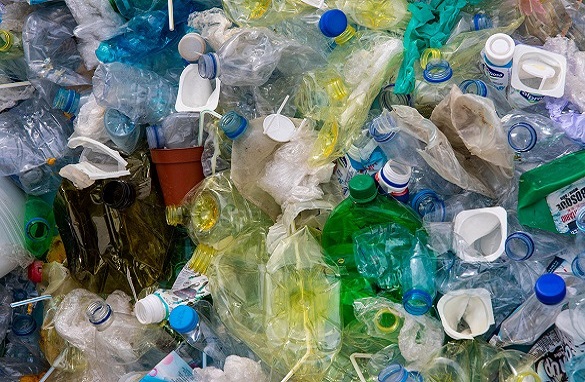
The Devastating Effects of Plastics on the Environment
Plastic pollution is a growing environmental issue causing devastating effects on the current climate. It has become ubiquitous and can be found in every corner of the world. The following are some of the critical issues associated with its pollution and impact on climate:
1. Carbon emissions: Polymer production requires using fossil fuels, which are a significant source of carbon emissions. The manufacturing process for plastic also releases carbon dioxide and other greenhouse gases into the atmosphere, contributing to global warming.
2. Marine pollution: Plastic waste is the largest source of marine pollution, which has significant consequences on the climate. Plastic is frequently mistaken for food by marine animals, and their plastic consumption can be fatal. It also hinders the ocean’s capacity to absorb carbon dioxide, accelerating climate change.
3. Land pollution: Non-biodegradable waste pollutes land, seriously affecting the environment and the climate. When waste is burned, it releases hazardous chemicals into the atmosphere, contributing to air pollution.

The growing plastic menace
Concerningly, the discovery of rocks fused with melted plastic on a remote Brazilian island that serves primarily as a green turtle nesting area brings attention to the widespread effects of environmental pollution. The impact of plastic pollution on wildlife is particularly troubling. Green turtles, for example, are known to mistake colourful synthetic bags for jellyfish and ingest them, leading to serious health problems and even death. The nesting sites of these turtles are already under threat by other environmental factors, such as rising sea levels and erosion, and plastic pollution only compounds these threats.
This discovery highlights the critical need to address polymer pollution at both the local and global levels. This can include better waste management practices, encouraging recycling, composting, and reducing single-use plastics. Furthermore, efforts to reduce its consumption must be coordinated and sustained, with individuals, businesses, and governments collaborating to find solutions.
Plastic is everywhere
Plastic has become an indispensable part of our modern lives. However, this does not mean that our dependence on it cannot be reduced and replaced. While eliminating it may be difficult, there are vital steps that individuals, businesses, and governments can take to mitigate its negative environmental impacts.
How to counter plastics?
Recycling and promoting a circular economy are two of the most effective ways to reduce its production. This entails designing packaging and products that are easily recyclable and establishing a robust recycling infrastructure to ensure that as much plastic waste as possible is diverted from landfills and the environment.
Another strategy is to promote using biodegradable or compostable products, which are designed to break down faster and with less environmental harm than traditional polymers. Our efforts to reduce plastic packaging and promote reusable alternatives, such as shopping bags made of natural materials, reusable water bottles and coffee cups can reduce our overall reliance on plastic.

Oko products replacing plastic packaging
Evirocor is making great strides in the field of biodegradable packaging. Eco-friendly packaging is an essential solution to the growing problem of synthetic pollution. It is designed to break down faster and with a minimum environmental harm than traditional plastics. This requires careful consideration of materials like Oko packaging and innovative production methods like Cortec-Revolution systems which require NO HEAT. Earth-friendly materials are not only a step towards a cleaner planet, but it would also help preserve our ecosystems’ health and safety for future generations.
